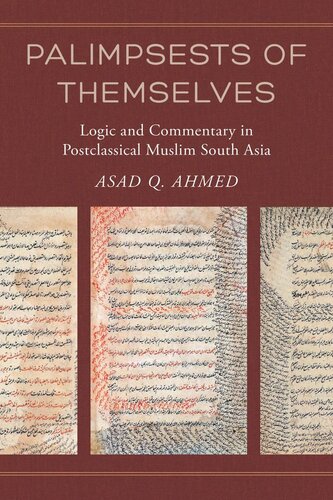

Most ebook files are in PDF format, so you can easily read them using various software such as Foxit Reader or directly on the Google Chrome browser.
Some ebook files are released by publishers in other formats such as .awz, .mobi, .epub, .fb2, etc. You may need to install specific software to read these formats on mobile/PC, such as Calibre.
Please read the tutorial at this link: https://ebookbell.com/faq
We offer FREE conversion to the popular formats you request; however, this may take some time. Therefore, right after payment, please email us, and we will try to provide the service as quickly as possible.
For some exceptional file formats or broken links (if any), please refrain from opening any disputes. Instead, email us first, and we will try to assist within a maximum of 6 hours.
EbookBell Team

0.0
0 reviewsA free open access ebook is available upon publication. Learn more at www.luminosoa.org.
Palimpsests of Themselves is an intervention in current discussions about the fate of philosophy in postclassical Islamic intellectual history. Asad Q. Ahmed uses as a case study the most advanced logic textbook of Muslim South Asia, The Ladder of the Sciences, presenting in English its first full translation and extended commentary. He offers detailed assessments of the technical contributions of the work, explores the social and institutional settings of the vast commentarial response it elicited, and develops a theory of the philosophical commentary that is internal to the tradition. These approaches to the commentarial text complicate presuppositions upon which questions of Islam’s intellectual decline are erected. As such, Ahmed offers a unique and powerful opportunity to understand the transmission of knowledge across the Islamic world.